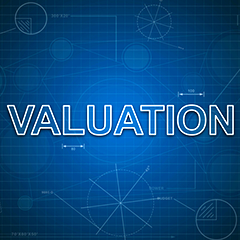What Professional Standards Apply to Business Valuations?
August 31, 2016 | Business Plans, Financial Planning, Valuations
 Business valuation experts who testify in court are often asked, “Did you follow appraisal standards in performing your engagement?” The next question is likely to be: “Which ones?” There are a number of different standards that cover business appraisal practice.
Business valuation experts who testify in court are often asked, “Did you follow appraisal standards in performing your engagement?” The next question is likely to be: “Which ones?” There are a number of different standards that cover business appraisal practice.
USPAP
Uniform Standards of Professional Appraisal Practice (USPAP) is one of the most widely recognized standards. Published by the Appraisal Standards Board of the Appraisal Foundation, these standards were created in response to the savings and loan crisis and emphasize the appraisal of real estate. But they also cover the appraisal of personal property and businesses.
Many professional organizations, government agencies, and client groups in North America have adopted USPAP. In addition, business appraisers who have the ASA (Accredited Senior Appraiser) or AM (Accredited Member) designations are required to follow them.
USPAP requires all appraisers to follow their ethics and competency rules. The ethics rule covers conduct, management, confidentiality and recordkeeping. The competency rule requires that the appraiser have knowledge and experience to complete the assignment competently.
VS Section 100
There are different standards required of valuators who are members of the American Institute of Certified Public Accountants (AICPA). The Statement on Standards for Valuation Services (VS) Section 100 applies to AICPA members who perform an engagement that estimates the value of a business, business interest, security or intangible asset for numerous purposes. These include:
- Financial planning,
- Financing,
- Litigation,
- Management,
- Mergers and acquisitions,
- Sales transactions, and
- Taxation.
The AICPA issued the standard for many reasons after several years of research. An increasing number of CPAs offer valuation services. Valuing intangible assets has become more important. The business community and individuals have become more interested in the process as evidenced by the attention focused on valuation by Congress, government agencies and accounting regulators.
“The standard promotes greater transparency and provides our members with a set of guidelines in the unique context of a CPA practice,” according to the AICPA president.
Additional Standards
The Professional Standards of the National Association Of Certified Valuators and Analysts (NACVA) must be followed by Certified Valuation Analysts (CVAs). The NACVA standards combine elements of USPAP and VS Section 100, as well as add guidelines for financial statement adjustments, capitalization and discount rates, and premiums and discounts.
It should be clearly stated on an appraisal report which standards were followed. In many cases, more than one set of standards is identified. That may be confusing, but it’s acceptable because the various standards generally complement each other.
